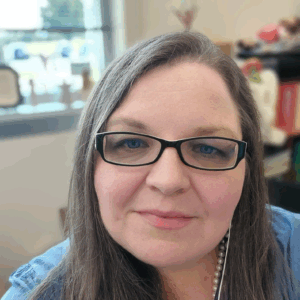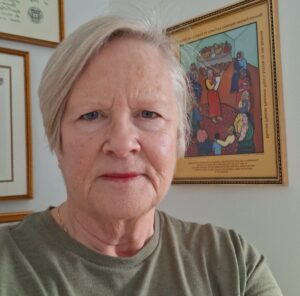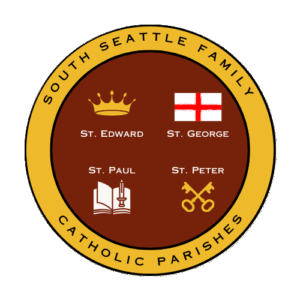Organizing Hope: A Pilgrimage of Welcome and Witness
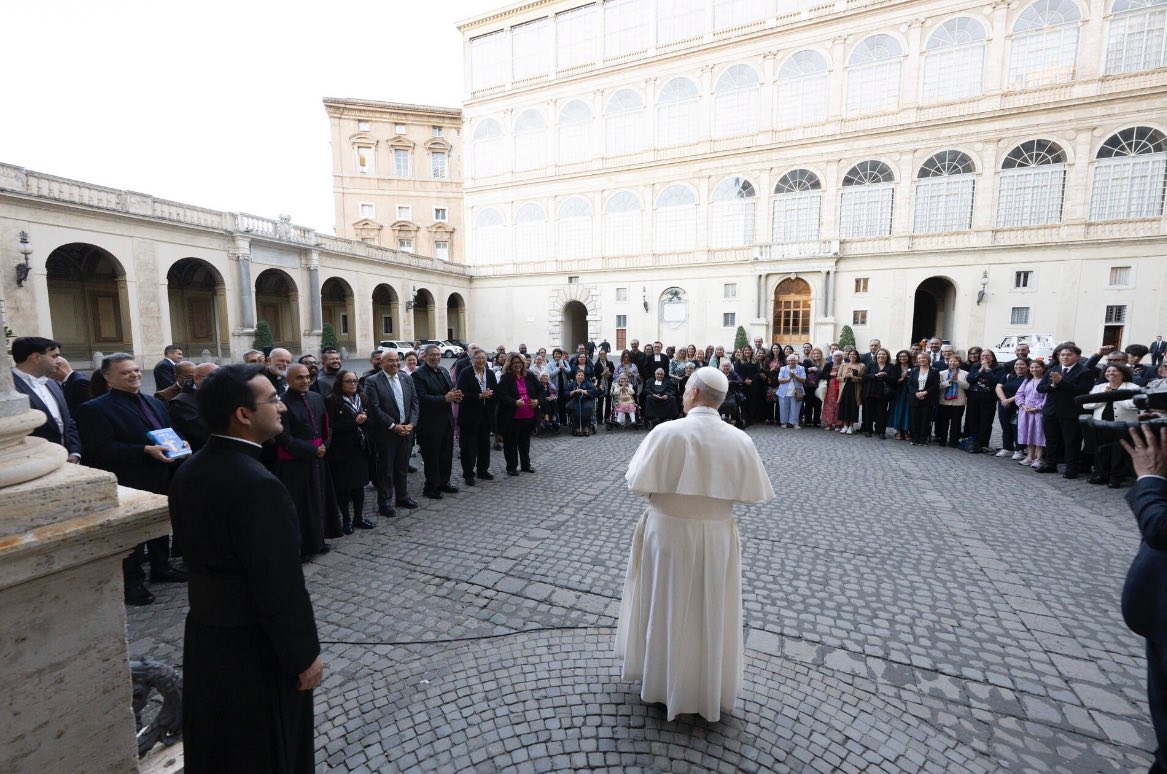
One of my late father’s favorite memories of receiving welcome in the U.S. after fleeing Cuba happened around Thanksgiving early 1960s. A few nuns knocked on his door and gifted his family a turkey and a basket of food. Not familiar with this celebration, the sisters explained the American custom of thanksgiving and warmly welcomed my dad and his parents to the neighborhood. It was a memory my father always cherished – to have been given a heartfelt welcome, seen, and valued. Thanksgiving became one of Manuel Hidalgo’s favorite holidays.
The hope in this story and the possibilities of building welcoming communities is part of what sustains my own faith journey as a Cuban-American Catholic woman. This hope has been sorely tested this year as immigrant families have been ripped apart by ICE officers and current federal policies throughout my Miami community and in so many neighborhoods across our country.
At Mass on Sundays, parishioners talk in hushed, fearful tones about neighbors, friends, and family members who have suddenly been detained and deported without due process, compassion, or mercy. Hundreds of thousands fear losing their temporary protected status and with it any hopes of security and flourishing for themselves and their families.
With this sadness and weariness in my body and soul, I enlisted to become a pilgrim of hope – to make another pilgrimage to Rome, this time for the Jubilee of Migrants. I joined pilgrims from Chicago, Los Angeles, Boston, Lexington and scores of other cities as part of a nearly 100-person delegation organized by the National Catholic Council of Hispanic Ministry (NCCHM) and Instituto Fe y Vida, under the leadership of NCCHM President Elisabeth Román.
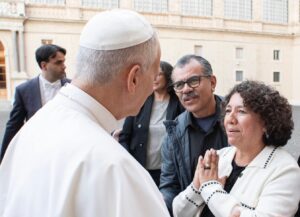
Image credit: Vatican Media
I want to share with you dear Discerning Deacons readers a few ways I found my hope renewed as we all seek to sustain our faith and courage in these times.
To our great joy, Pope Leo XIV received our delegation in a private audience on Oct. 7 affirming the significance of courageous pastoral ministry in the U.S.
“You have in your hands a very great task, which is to accompany the people who truly and profoundly need a sign that God never abandons anyone: not the smallest, not the poorest, not the foreigner, not anyone,” Pope Leo told us in Spanish.
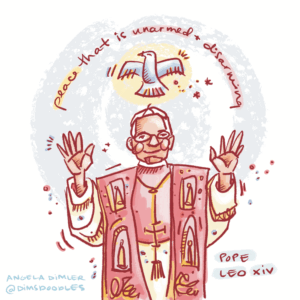
He then proceeded to greet each pilgrim personally, and many gave him letters from migrants in their communities who are facing unprecedented levels of fear. My gift to Pope Leo was the image which Angela Dimler (a discerning deacon) made of him the week of his election. Her artwork lifts up Pope Leo’s description of the peace of the Risen Christ in his first address on St. Peter’s Square: “Peace that is unarmed and disarming.”
I also handed the Holy Father a letter of introduction about the work of Discerning Deacons and our organizational commitment to being messengers of hope and heralds of the Good News. We will continue to serve the Synod’s Implementation Phase and help to mature the ongoing discernment about women and the diaconate.
Throughout the week, we were accompanied by U.S. bishops who celebrated Mass with us, including Bishop Mark Seitz of El Paso, Auxiliary Bishop Evelio Menjivar of Washington, DC and Bishop Bruce Lewandowski of Providence. Bishop Seitz recalled his days as a parish priest in Dallas ministering to immigrant families from Honduras. “Once you meet and know people, the theme of migration is seen differently.” said Bishop Seitz. “Only love can expel fear.”
Dylan Corbett, executive director of the Hope Border Institute in El Paso, spoke to our delegation, recalling Pope Francis’ teaching that hope is both a gift and a duty. Said Corbett: “As a church, we are called to organize hope in very concrete ways that must be reflected at the grassroots level — it is the essence of pastoral work.”
As discerning deacons we know what it means to animate our communities and to organize hope. I want to share three concrete ways we can stand in solidarity with our immigrant brothers and sisters in the coming weeks.
- In memory of St. Frances Xavier Cabrini, patron saint of immigrants, the U.S. bishops are inviting the faithful to take the Cabrini Pledge to encourage civic dialogue and to pray for migrants and refugees. Take the Cabrini Pledge here.
- Consider hosting a local screening of the film Cabrini, as one way to get conversations going about what brave, faithful discipleship can look like in the face of many forms of oppression and resistance. Check out our resource page.
- Organize or participate in a faithful public witness. On Wednesday, October 22 and Thursday, November 13, 2025, Catholics across the U.S. are invited to join in a national day of public action for our immigrant brothers and sisters. View resources here.
Together we can organize hope and watch it grow as we affirm the truth of our belief in the Gospel of Jesus: “I was a stranger and you welcomed me.” (Matthew 25:35)
